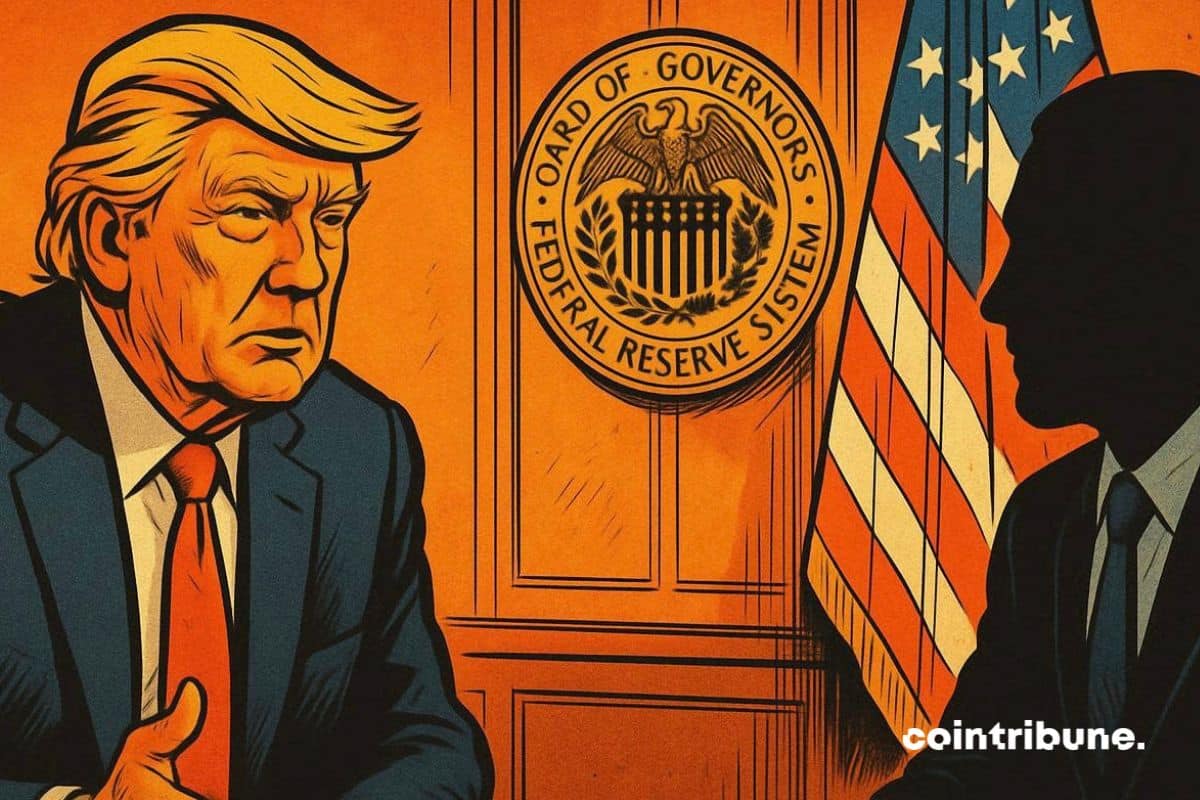The Legal Defense of Tornado Cash and the Future of Developer Liability in Blockchain
- Roman Storm's Tornado Cash conviction highlights legal ambiguity around developer liability for open-source blockchain protocols. - Ethereum and Solana ecosystems pooled $1M to defend privacy tools, signaling cross-chain solidarity against regulatory overreach. - U.S. Treasury's 2025 sanctions lift on Tornado Cash reflects growing recognition of privacy tools' legitimate use cases. - Institutional TVL surged to $95.5B on Ethereum as regulatory clarity and compliance-ready protocols attract investment. -
The Tornado Cash case has become a pivotal battleground in the ongoing debate over developer liability in blockchain. Roman Storm’s conviction for conspiring to operate an unlicensed money transmitting business, while deadlocked on more severe charges, underscores the legal ambiguity surrounding open-source, non-custodial protocols [1]. Prosecutors argued that Storm knowingly enabled illicit activity, including by North Korea’s Lazarus Group, while the defense emphasized that developers should not be held criminally liable for third-party misuse of their code [1]. This tension between innovation and regulation has sparked a broader industry response, with cross-chain solidarity emerging as a critical factor in shaping the future of decentralized technologies.
Cross-Chain Solidarity and Legal Resilience
The Ethereum Foundation and Solana Policy Institute’s joint $1 million contribution to Storm’s legal defense highlights a growing trend: blockchain ecosystems collaborating to protect developers and privacy tools [5]. This solidarity reflects a strategic effort to counter regulatory overreach and preserve the open-source ethos of blockchain. By pooling resources, these chains signal to regulators that decentralized innovation is not confined to a single platform but is a collective industry priority. Such alliances may pressure governments to adopt clearer liability frameworks, balancing privacy rights with anti-money laundering (AML) obligations [4].
The U.S. Treasury’s 2025 decision to lift sanctions on Tornado Cash further illustrates this dynamic. While the DOJ’s enforcement actions remain contentious, the Treasury’s reversal suggests a nuanced recognition of the tool’s legitimate use cases, such as protecting personal data and enabling anonymous charitable giving [3]. This regulatory shift aligns with the DOJ’s broader intent-based enforcement policy, which shields truly decentralized developers from criminal charges unless there is explicit evidence of criminal intent [2]. For investors, this signals a potential softening of regulatory hostility toward privacy-focused protocols, provided they integrate compliance mechanisms like zero-knowledge proofs [2].
Institutional Adoption and Regulatory Clarity
Institutional investors are increasingly factoring cross-chain resilience into their strategies. The DOJ’s policy shift has spurred Ethereum’s Total Value Locked (TVL) to $95.5 billion by August 2025, driven by regulatory clarity and the removal of securities classifications for liquid staking tokens (LSTs) [1]. Similarly, Solana’s high transaction speeds and low fees have attracted $1.25 billion in institutional capital, with projects like Kamino Finance bridging DeFi and traditional markets through tokenized assets [2]. Cross-chain liquidity solutions, such as 1inch’s integration with Solana, further reduce operational costs and diversify risk, making multi-chain strategies attractive for institutions [2].
However, challenges persist. Staking tax ambiguities and market volatility remain concerns, while international coordination on AML standards lags [4]. Yet, the rise of compliance-ready platforms—such as Privacy Cash on Solana, which uses zero-knowledge proofs to align with OFAC regulations—demonstrates how developers are adapting to regulatory expectations [2]. For investors, this innovation suggests that protocols prioritizing both privacy and compliance will dominate the next phase of institutional adoption.
Strategic Implications for Investors
The Tornado Cash case and cross-chain solidarity highlight a critical inflection point for blockchain. Developers who integrate compliance from the ground up, rather than retrofitting it, are likely to attract institutional capital. For example, Ethereum’s Layer 2 solutions and Solana’s Alpenglow upgrade have reduced gas fees by 90%, making DeFi participation more scalable [2]. Meanwhile, tokenization of real-world assets (RWAs) on platforms like Kamino Finance expands institutional access to traditional markets via blockchain [3].
Investors should also monitor regulatory developments in the EU and Asia. The EU’s MiCA 2.0 and Hong Kong’s crypto trading reopening indicate a global race to attract innovation, with U.S. institutions preparing for cross-border competition [5]. The DOJ’s “Ending Regulation by Prosecution” memo, which discourages using criminal charges as a substitute for regulatory frameworks, further reinforces the need for legal clarity [2].
Conclusion
The legal defense of Tornado Cash and the cross-chain solidarity supporting it are redefining the boundaries of developer liability and regulatory engagement. While the outcome of Storm’s appeal remains uncertain, the broader industry response—coupled with regulatory shifts like the DOJ’s intent-based policy—suggests a future where privacy and compliance coexist. For investors, this means prioritizing protocols that balance innovation with adaptability to evolving legal frameworks. As cross-chain collaboration intensifies, the next phase of blockchain will likely be shaped by those who navigate the intersection of code, compliance, and community.
Source:
[1] The Tornado Cash Trial's Mixed Verdict: Implications for Developer Liability
[2] Cross-Chain Liquidity and DeFi Innovation: A New Era of Risk Diversification and Institutional Adoption
[3] Tornado Cash: Where Code, Privacy, and Sanctions Collide
[4] The DOJ's Regulatory Shift: Fueling a DeFi Renaissance
[5] Regulatory Shifts in Crypto in 2025
Disclaimer: The content of this article solely reflects the author's opinion and does not represent the platform in any capacity. This article is not intended to serve as a reference for making investment decisions.
You may also like
HyENA officially launched: Perp DEX supported by Ethena and based on USDe collateral goes live on Hyperliquid
The launch of HyENA further expands the USDe ecosystem and brings institutional-grade margin efficiency to the on-chain perpetuals market.
Elon Musk at the Center of an Unprecedented Showdown with the EU

Stablecoin Payments: Stripe’s Tempo Blockchain Launches Public Testnet

Trump Launches Fed Auditions: Who Will Replace Powell?
